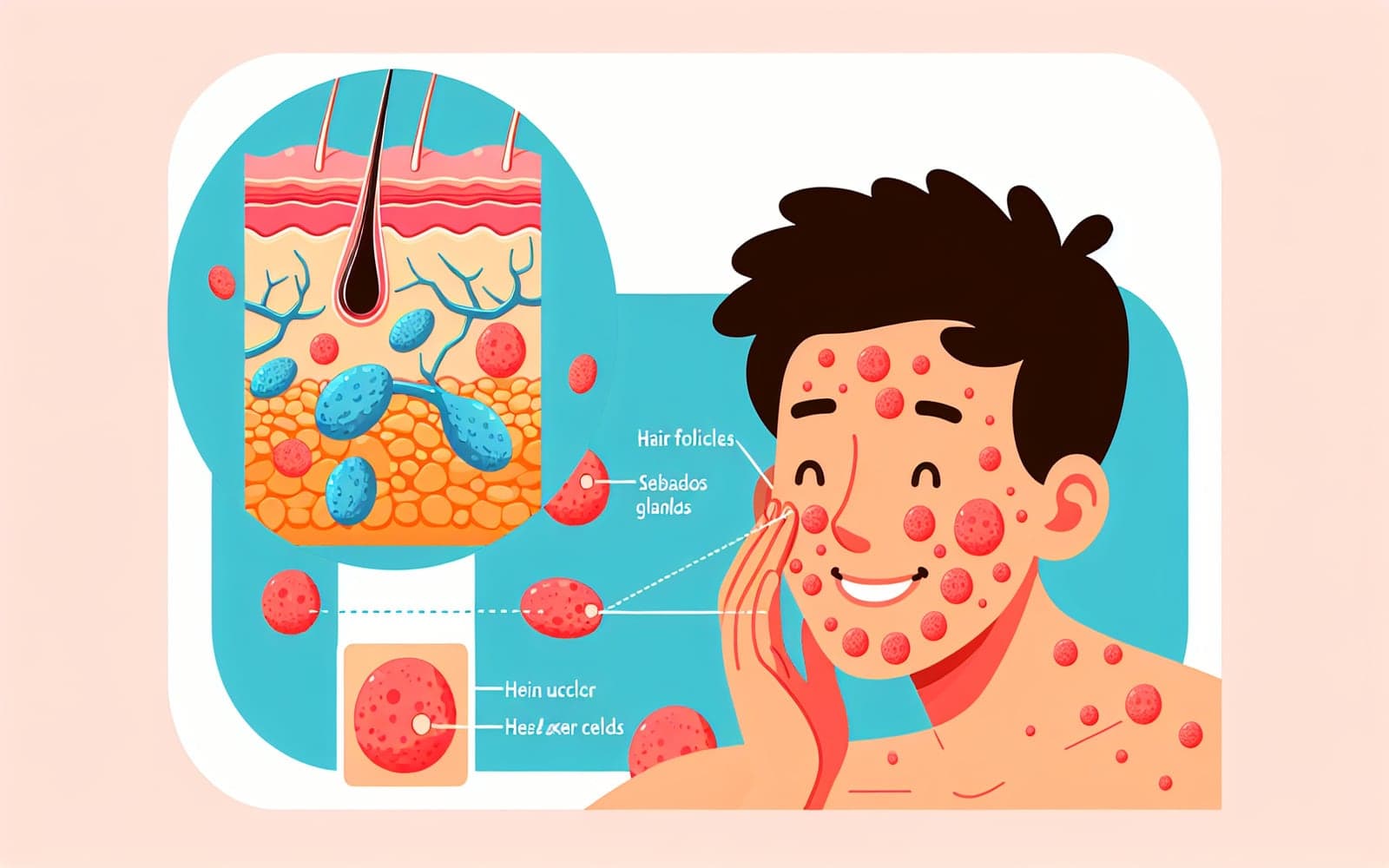What is Acne and Why Does It Happen?
Published: Feb 19, 2024

Medically reviewed by Alan Lucks | MD, Alan Lucks MDPC Private Practice - New York on February 19th, 2024.
Acne is a common skin condition that affects many people, but understanding its causes can help manage it effectively. Let's dive into what causes acne and how it develops.
Contents
What Causes Acne?
Acne occurs when hair follicles become clogged with oil and dead skin cells. Factors such as excess oil production, bacteria, hormones, and inflammation all play a role. These elements combine to create pimples, blackheads, and whiteheads on the skin.
Types of Acne Lesions
Acne can manifest in different forms, such as comedones (blackheads and whiteheads), papules, pustules, and nodules. The type of lesions present can influence the treatment approach, with some requiring more aggressive therapy than others.

Acne Severity Levels
Acne severity can range from mild to severe, characterized by the number and type of lesions. Mild acne might present as a few pimples, while severe acne can lead to widespread nodules and cysts, potentially causing scarring.
Frequently Asked Questions
Clogged pores, bacteria, and hormones trigger acne.
Comedones are clogged hair follicles, known as blackheads and whiteheads.
Severity is based on the number and type of lesions, from mild to severe.
Key Takeaways
Understanding acne's causes and types is the first step in managing it effectively.
Discuss your acne concerns with Doctronic to find the best approach for your skin.Related Articles
References
Dalgard F, Gieler U, Holm JØ, et al. Self-esteem and body satisfaction among late adolescents with acne: results from a population survey. J Am Acad Dermatol 2008; 59:746.
Yazici K, Baz K, Yazici AE, et al. Disease-specific quality of life is associated with anxiety and depression in patients with acne. J Eur Acad Dermatol Venereol 2004; 18:435.
This article has been reviewed for accuracy by one of the licensed medical doctors working for Doctronic. Always discuss health information with your healthcare provider.

